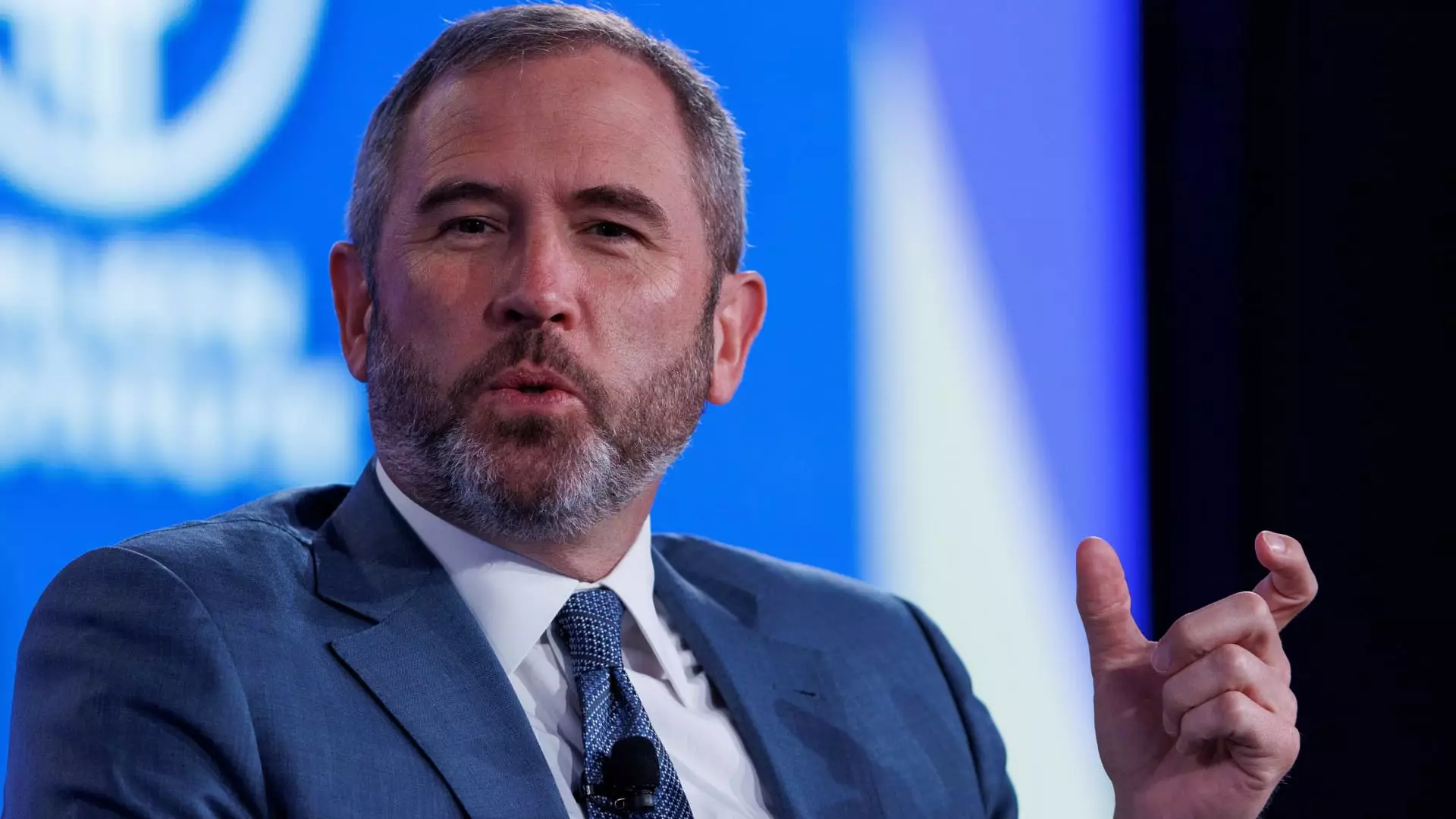The long-standing clash between the Securities and Exchange Commission (SEC) and the cryptocurrency industry appears to have reached a crucial turning point. Ripple Labs, a key player in the crypto ecosystem, has emerged victorious after the SEC dropped its four-year-old lawsuit against the company, initially filed during the tenure of former SEC Chair Jay Clayton. The lawsuit had accused Ripple of raising $1.3 billion through the unregistered sale of its XRP token, marking one of the most significant legal challenges faced by a crypto entity.
This moment resonates with broader implications for the crypto landscape. The SEC’s relentless pursuit of enforcement and regulation against various crypto exchanges and companies, including Coinbase, Kraken, and Binance, has seemingly softened. It reflects a shift in regulatory strategy that may provide much-needed clarity and stability for digital asset projects, much to the relief of industry participants.
Ripple’s Battle: A Stand Against Regulatory Overreach
Ripple’s Chief Legal Officer, Stuart Alderoty, expressed his sentiments regarding the outcome, suggesting that Ripple’s fight against the SEC stands as a testament to the resilience and determination of the crypto community. “Ripple stands alone as the company that fought back—and won on essential legal questions,” Alderoty stated, highlighting the notion that Ripple has thrown a “major wrench” into the SEC’s agenda of curtailing the growth of crypto within the United States.
The journey was far from straightforward, as Ripple invested an eye-catching $150 million to defend itself against the government’s allegations. This legal strife not only tested Ripple’s capacity but also fortuitously revealed the SEC’s vulnerabilities. The pivotal moment came in July 2023 when a federal judge ruled that XRP is “not necessarily a security on its face.” This ruling undermined the foundational elements of the SEC’s case and ignited a shift in momentum, instilling hope in other crypto firms facing similar challenges.
A Broader Awakening Within the Crypto Industry
As Ripple celebrated its legal win, the broader cryptocurrency ecosystem began to notice a change in regulatory winds. This sentiment became even more pronounced with the return of former President Donald Trump to the political stage, where he unexpectedly voiced strong support for crypto at the annual Bitcoin Conference. Trump’s newfound enthusiasm for digital currencies has caught many observers by surprise, not least because his previous administration took a skeptical stance towards crypto innovation.
Moreover, reports suggest that Ripple and its crypto counterparts played a significant role in Trump’s campaign financing, creating an intriguing nexus between political maneuvers and the future of crypto regulation. As the administration shifted, the SEC showcased its first major crypto roundtable, indicating a move toward a cooperative regulatory approach rather than hostile enforcement tactics.
An Evolving Regulatory Landscape
Trust in regulatory authority is essential for any emerging industry to flourish, and recent actions by the SEC suggest an impending evolution in its approach to overseeing digital assets. Hester Peirce, a prominent figure at the SEC and leader of its newly established Crypto Task Force, is paving the way for a collaborative relationship with the industry. Peirce has committed to providing clarity, aiming to reinforce a legal structure in which cryptocurrency can thrive within the U.S. market.
Impressively, the SEC also rescinded the controversial Staff Accounting Bulletin 121, which previously required banks to treat crypto assets as liabilities. This change was widely regarded as a significant hurdle for institutional adoption of cryptocurrencies. Peirce celebrated this development with enthusiasm, posting “Bye, bye SAB 121! It’s not been fun,” which reflects a growing sense of optimism and understanding of the industry’s needs.
The Road Ahead for Crypto Regulation
While Ripple’s legal battle has ended, the quest for transparent and coherent crypto regulation remains ongoing. Alderoty underscored this sentiment, emphasizing that although this chapter is closed, the fight for clear regulations is far from over. This ongoing struggle reflects the necessity for a middle ground where innovation can flourish without stifling oversight by regulatory bodies.
The momentum created by Ripple’s victory, along with the SEC’s recent policy shifts, might pave the way for a more conducive environment for digital asset firms. As such, the industry must not only celebrate these victories but remain vigilant in advocating for a regulatory framework that embraces technological advancement while ensuring consumer protections are firmly in place. The fallout from Ripple’s battle could very well lay the groundwork for a new era of cryptocurrency understanding, signaling a time where regulatory entities work in partnership rather than against innovators in this dynamic landscape.

